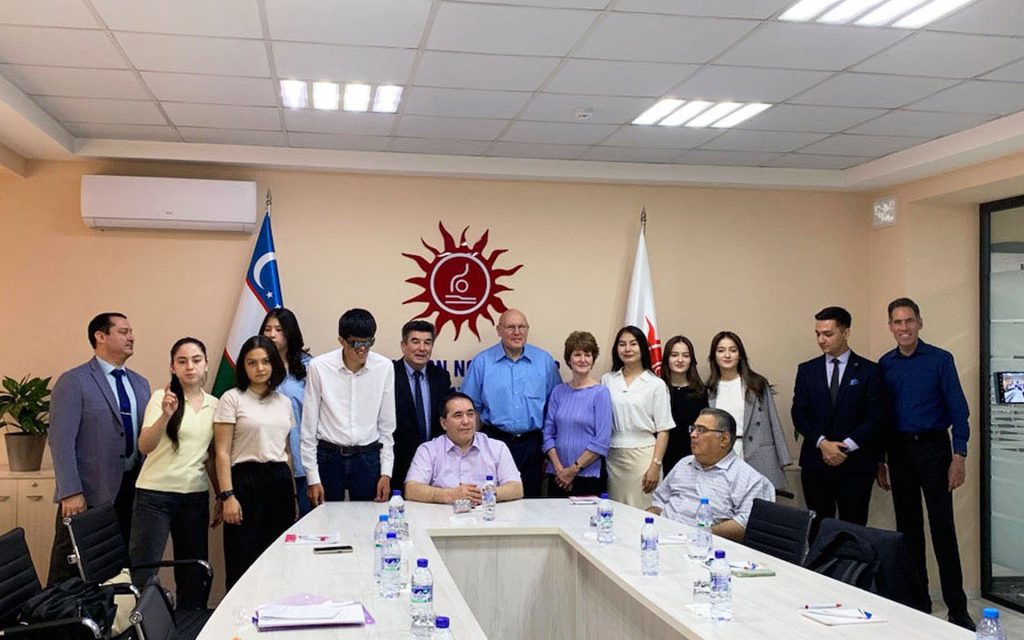
This spring, Professor Michael Schwartz, Director of the Disability Rights Clinic, Office of Clinical Legal Education at the College of Law visited the University of World Economy and Diplomacy’s (UWED) law clinic in Tashkent, Uzbekistan. Schwartz visited UWED to investigate the prospects for collaboration with Syracuse Law as UWED is seeking to expand its law clinic to address disability rights issues. In eleven meetings over four days, Professor Schwartz addressed law clinic faculty and students, along with Deaf students from a local high school, and members of the law enforcement and judicial communities.
Schwartz was also interviewed on Uzbek TV about his visit, which was captioned by Mirjakhon Turdiev, an Uzbek graduate student affiliated with Maxwell School’s Global Affairs Program. In his interview, Schwartz stated, “We would like to establish relations in Uzbekistan to create a new system for the protection of the daily rights of persons with disabilities. For this purpose, I came to your country. Uzbekistan has ratified the Convention on the Rights of Persons with Disabilities, and this is really wonderful, now it is time to fully implement the rights shown in this convention. During my career as a lawyer, I achieved the release of a deaf man who was unjustly sentenced to 12 years in prison, as well as the release of a blind man who was sentenced to 33 years in prison for murder. There are many people with disabilities who have become innocent victims of such crimes. For this reason, every person should first of all know their rights and be properly protected.”
Prospects for a collaboration between UWED and Syracuse Law are bright. “There is much work to do to help Uzbekistan in meeting its obligations under the UN Convention on the Rights of Persons with Disabilities. This work will also benefit Syracuse’s law students as they acquire knowledge of international human rights law,” says Schwartz.
